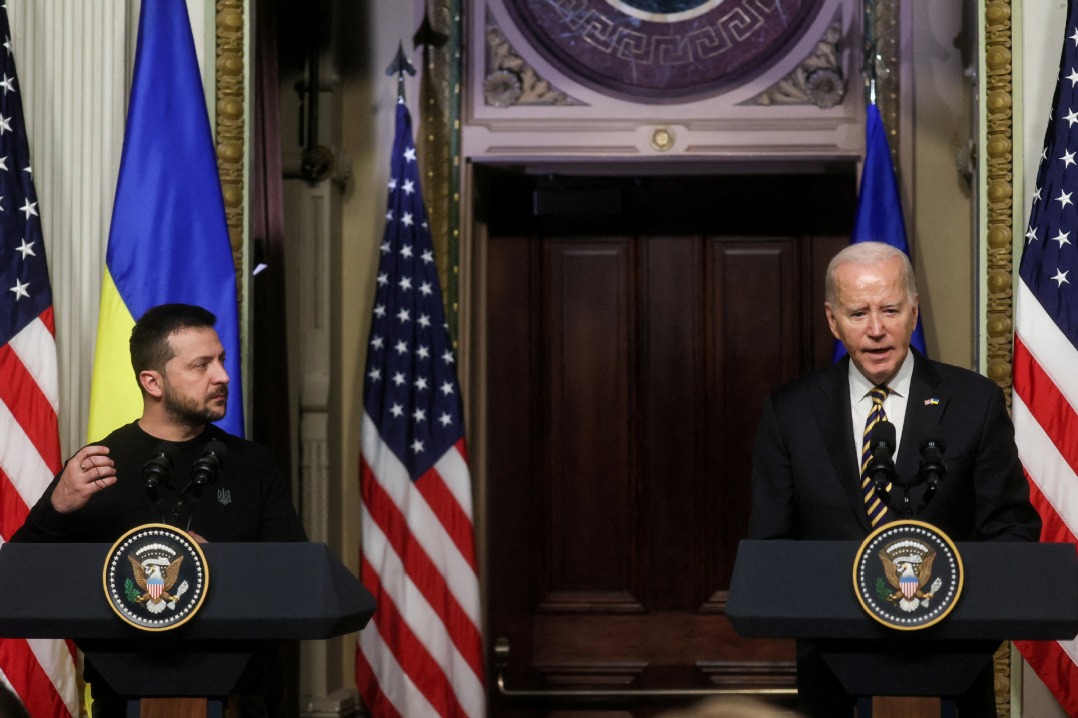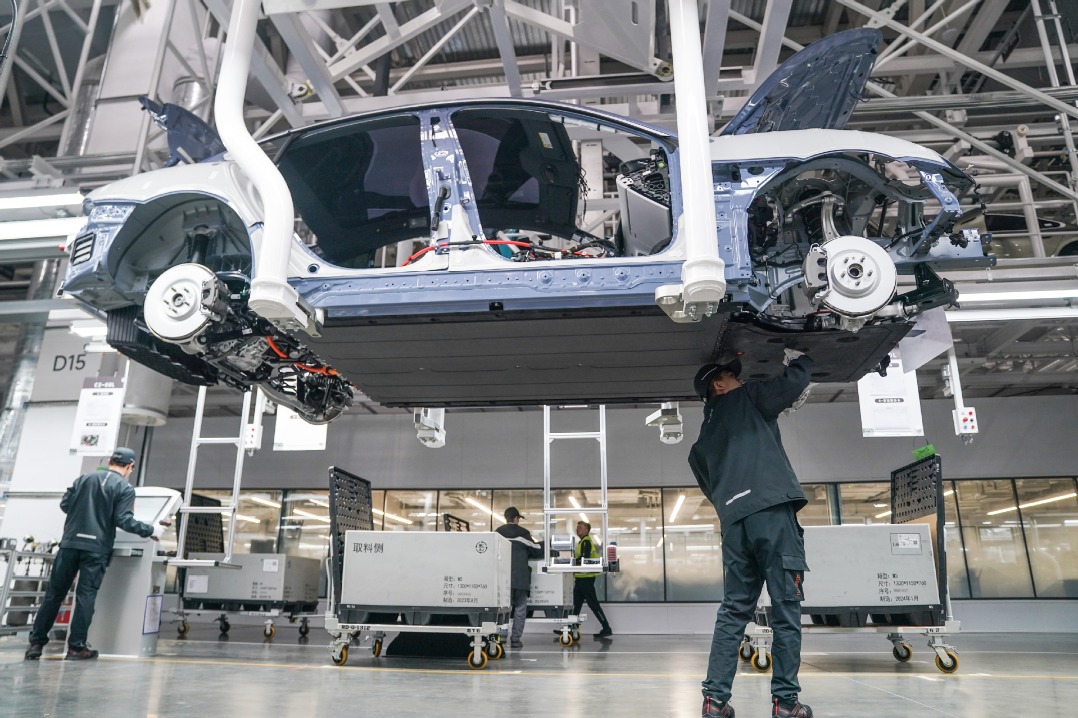World would be winner in green race
By ZHAO HAI | chinawatch.cn | Updated: 2019-12-30 10:43
What if China and the United States were to choose to engage in a green race instead of fighting a no-winner trade war? That is a question raised by former secretary of state John Kerry and Ro Khanna who represents Silicon Valley in the US House of Representatives in an opinion piece published in The New York Times.
Correctly pointing out how obsessed and paranoid Washington is about China's rise, with any number of concerns and anxieties, they also note how the measures taken by the US government and Congress are off target in dealing with the most urgent problem the world is facing today-climate change.
The omnipresent narrative in the US is of strategic competition with China. But interestingly, Kerry and Khanna framed bilateral relations in the form of a clean energy race in which China is now on its way to becoming the OPEC of the 21st century energy industry. According to their observation, forecast, and bias, a new world energy order with China as the dominant clean technology provider would be detrimental to the interests of the US.
Since US policymakers cannot generate enough domestic support to stay in the Paris Agreement on climate change, or adopt meaningful bipartisan resolution anywhere near the Green New Deal, let alone design and implement a national strategy to lead the world in green technology, it is perhaps not that surprising that Kerry and Khanna should come up with the only possible catalyst for actions at home, a "sputnik moment" for US-China competition in clean technology.
Regardless of the US intentions, and considering the lost opportunity at the UN climate talks in Madrid recently, China should welcome a green race with the US. The signs of global climate crisis take no effort at all to find. California recorded the most destructive wildfire season in 2018, burning an area of over 1.8 million acres. The Amazon was burning for weeks this year and the smoke could be seen from space. Wildfires are still raging in Australia, turning Sidney into a giant smoking room. Greenland is losing ice seven times faster than two decades ago. So if the international community cannot have the joint leadership of China and the US on climate change action as it did in 2015, maybe a market-oriented green race between the two can be an alternative way to curb global warming.
A green race is decidedly non-geopolitical. Unlike 5G, AI, robotics or other dual use technology, most clean technology solutions are decentralized, local, non-military and implausible to be used as political leverage. Increased energy efficiency and reduced greenhouse gas emissions anywhere is a contribution to curb climate change everywhere. Hence, the more green tech that is exported and used, no matter who is the provider, the more benefit the world as a whole will gain.
China has a head start against the US in this race. Backed by its leading positions in renewable energy technology, electric vehicle production and consumption, highspeed rail manufacturing, and large investment in innovative green technology, China enjoys comfortable comparative advantages. And on top of that, there is a higher level of consensus within the Chinese leadership and society on cherishing the environment and transitioning toward a sustainable growth model. China's green technology will be further improved and applied in a fair and healthy global competition with the US, especially among Belt and Road Initiative participating countries.
In order to make the green race with China argument sound particularly acute, Kerry and Khanna seem to completely forget the European Union and Japan's advancement in such technology. In fact, EU leaders have agreed to make their countries carbon neutral by 2050 and 100 billion euros ($111 billion) will be spent on the ambitious European Green Deal to reach the net-zero emissions target. But a US-China green race marked by proactive government policies and programs will surely spur global investment and competition in renewable power production, energy-storage systems, electric car batteries, smart power grids, and many more new technologies that can usher in a green revolution of global economy.
Cooperation will be the natural outcome of this race. China and the US are responsible for more than 40 percent of the world's CO2 emissions. In other words, they are the largest market for clean energy technology. Recognizing common challenges is the first step toward cooperative relations and mutual trust. The US is very strong in basic sciences and advanced technologies while China is good at supply chain integration and mass production. Even when companies from both countries compete for bigger market shares, they can supplement each other with superior options than working alone.
Imagine what the green race in a global carbon market can do to redefine China-US relations, the global energy market, and world economy in the 21st century. Unfortunately, Washington would rather spend an additional $130 billion on the military than investing in a green future for all. So for now, China will race on with other partners, waiting for the US to rejoin the game of making the world a better place.
The author is a researcher with the Institute of World Economics and Politics, Chinese Academy of Social Sciences.
The author contributed this article to China Watch exclusively. The views expressed do not necessarily reflect those of China Watch.
All rights reserved. Copying or sharing of any content for other than personal use is prohibited without prior written permission.























